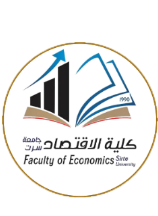أثر بعض الابعاد الثقافية لنموذج Hofstede على الذكاء الانفعالي "دراسة حالة على الممرضين بمركز مصراتة الطبي
DOI:
https://doi.org/10.37375/esj.v2i3.2045Abstract
This research empirically examines the impact of two dimensions of Hofested’s (2010) cultural dimensions on emotional intelligence (EI) of nurses at Misurata Medical Center (MMC). The research aims to explore theories and highlight interpretations of research participants regarding research topic, and to test the relationship between Masculinity and Indulgence, in one hand, and EI on the other hand. It also aims to determined differences among participants in relation to their demographic data in effecting levels of EI. Therefore, a mixed research design were adopted to achieve its aims. This has led to apply two research stages; firstly, is trough conducting 10 semi-structured, as data was analysed according to Qualitative Data Analysis Techniques (QDA). Secondly, a questionnaire was administered to measure the research variables. Therefore, 175 questionnaires, out of a population of 326, were distributed. However, data was statistically analysed the significant results were highlighted. The most highlighted results are; nurses at MMC have shown high levels of EI of about 81%, results have highlighted that sex and years of service have no significant correlations with EI. On the other hand, they have reaffirmed that ages are correlated with EI by 0.043. However, results have confirmed that both masculinity and restraint have shown significant associations with EI of 0.212 and 0.031 subsequently. Based on these results, the researchers have discussed that nurses who show high levels of EI should be giving more advantages and such behaviours should be encouraged at MMC. Furthermore, all ages of nurses should be encouraged engage in EI behaviours.
References
• الكيكي. محسن 2010 ، الذكاء الانفعالي لدى الطلبة ،ا لمتميزيين مجلة أبحاث كلية التربية الأساسية، العدد 2، المجلد 10 ، نينوي.
• المللىي. سهاد 2010 ، الذكاء الانفعالي وعلاقته بالتحصيل الدراسي لدى عينة م المتفوقبن والعاديين، مجلة جامعة دمشق، العدد الثالث، المجلد السادس والعشرون، صفحة 135
• ب جامع. ابراهي 2010، الذكاء الانفعالي وعلاقته بفاعلية القيادة، رسالة ماجستير غير منشورة، جامعة منثوري قسنطينة، قسنطينة.
• ب عمور. جميلة، بن طاهر 2015 ، مستوى الذكاء الانفعالي لدى الطالب الجامعي، مجلة التنمية البشرية، العدد الخامس، جامعة وهرات، صفحة -134165 .
• بكاي. عبد المجيد 2016 ، التنوع الثقافي وعلاقته بالقيم التنظيمية داخل المنظمات متعددة الجنسيات، اطروحة دكتوراه غير منشورة، جامعة باجي لستار، عنابة.
• يلال. نجمة2014، الذكاء الوجداني وعلاقته بالثقة بالنفس، رسالة ماجستير غير منشورة، جامعة مولود معمري، الجزائر.
• جولمان. دانيال) 2000 (، الذكاء العاطفي )ترجمة ليىو الجبالي(، المجلس الوطني للثقافة والفنون والآداب، الكويت.
• جولمان. دانيال) 2015 (، الذكاء العاطفي، مجلة هارفرد بزنس ريفيو بالعربية الصادرة ع المجلة العالمية Harvard Business Review ، شركة هيكل ميديا.
• Amgalan, R. (2016), The Indulgence and Restraint Cultural Dimension: A Cross-Cultural Study of Mongolia and the United States, USA.
• Bar-On, R. (2000), Bar-On Emotional Quotient Inventory, Youth Version, MHS, US.
• Chun, K.H. Park, E. (2016), Diversity of Emotional Intelligence among Nursing and Medical Students, Centers for Disease Control and Prevention,Volume7, Korea.
• Dusek, G. A., Yurova, Y. V., & Ruppel, C. P. (2015). Using social media and targeted snowball sampling to survey a hard-to-reach population: A case study. International Journal of Doctoral Studies, 10 279-299.
• Gunkel M, Schlaegel C, Taras V,. (2016). “Cultural values, emotional intelligence, and conflict handling styles: A global study”. Journal of World Business, Volume 51, Issue 4, June 2016, Pages 568-585.
• Hofstede, G. (2011). Dimensionalizing Cultures: The Hofstede Model in Context.Online Readings in Psychology and Culture, 2(1).
• Hofstede, G. Hofstede, G.J. & Minkov, M. (2010). Cultures and Organizations: Software of the Mind. 3rd Edition, McGraw-Hill, USA.
• Hofstede, (2018), www.hofstede-insights.com/country-comparison/libya 12:00 pm- 1:30 pm.
• Kuhakoski, A.( 2016). Emotional Intelligence at Work: Implications for Finland and Sweden. Jönköping University, Sweden.
• Năstasă, L. Farcaş,A.(2015), The Effect of Emotional Intelligence on Burnout in Healthcare Professionals, Social and Behavioral Sciences, ELSVIER, Volume187, Amsterdam.
• Taylor, C. Gibbs, G. R. (2010), "What is Qualitative Data Analysis (QDA)?",Online QDA Web Site, [onlineqda.hud.ac.uk/Intro_QDA/what_is_qda.php]





























